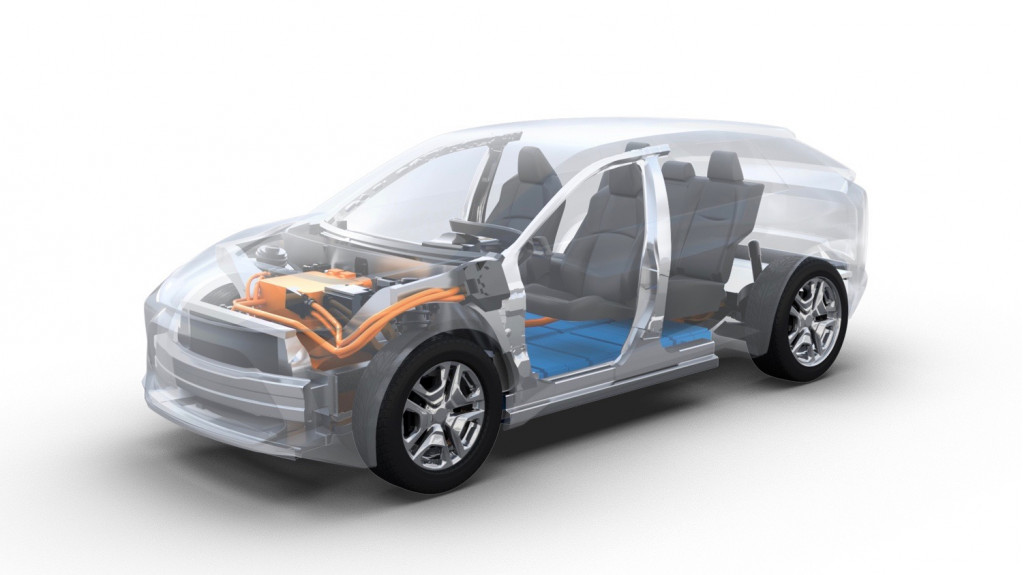Toyota is planning a battery-electric SUV for the European market, the automaker confirmed in a press release Monday. A version for the United States is likely to follow.
The unnamed SUV will be based on the e-TNGA platform, an EV-specific derivative of the Toyota New Global Architecture (TNGA) platform used by most of the automaker's current internal-combustion models.
This architecture will support front-wheel drive, rear-wheel drive, and all-wheel drive configurations, with a variety of power outputs and battery-pack capacities, Toyota said, adding that it's aiming to launch a "portfolio of battery-electric products."
The first e-TNGA-based model "has already been developed and is being readied for production" at a factory in Japan, according to Toyota.

Toyota electric crossover teaser
A battery-electric derivative of TNGA was likely only a matter of time. In 2018, Toyota anticipated that from 2030 at least 10% of its global fleet would be made up of battery-electric and hydrogen fuel-cell vehicles. Scaling up fuel-cell cars has proven difficult, however, due to lack of hydrogen infrastructure.
Meanwhile, a battery-electric model is coming to the U.S. in the "short term," Toyota North America CEO Tetsuo Ogawa said in an interview with Automotive News, while maintaining that hybrid powertrains will remain the automaker's core technology. That fits with Toyota's overall attitude, which has been to downplay the importance of electric cars in favor of hybrids, where the automaker has an undisputed advantage.
The U.S.-market electric model is almost certainly the result of the previously revealed joint venture to co-develop an electric SUV with Subaru. That project was announced in 2019 as part of a broader partnership between the two automakers, which previously collaborated on the Subaru BRZ and Toyota 86 sports-car twins.
Toyota has had several low-volume EVs in the past—including the "powered by Tesla" second-generation RAV4 EV, built primarily to satisfy California's zero-emission vehicle mandate.
